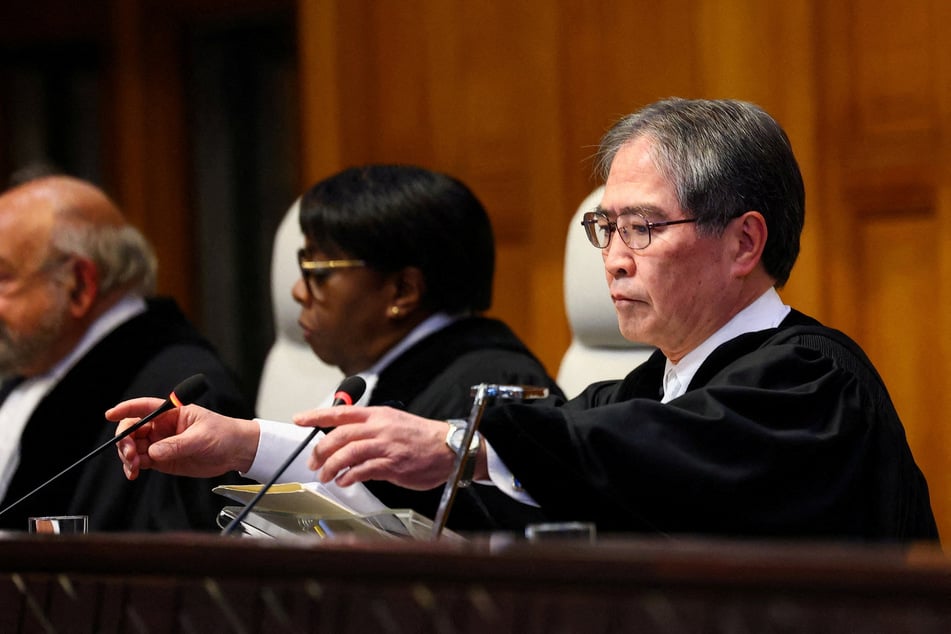International Court of Justice rules Israel "under obligation" to facilitate Gaza aid
The Hague, Netherlands - The International Court of Justice said Wednesday that Israel was obliged to ease the passage of aid into Gaza, stressing it had to provide Palestinians with "basic needs" essential to survival.

The wide-ranging ICJ ruling came as aid groups are scrambling to scale up much-needed humanitarian assistance into Gaza, with Israel continuing to block deliveries despite a ceasefire agreed earlier this month.
The ICJ's advisory opinions do not create additional legal obligations, but the court believes it carries "great legal weight and moral authority".
ICJ President Yuji Iwasawa said Israel was "under an obligation to agree to and facilitate relief schemes provided by the United Nations and its entities".
That included UNRWA, the UN agency for Palestinian refugees, which Israel has banned after accusing some of its staff of taking part in the October 7, 2023, Hamas attack.
The ICJ ruled that Israel had not substantiated those allegations.
Iwasawa said the ICJ "rejects the argument that the request abuses and weaponizes the international judicial process".
On the eve of the ICJ ruling, Abeer Etefa, Middle East spokeswoman for the UN's World Food Programme, said 530 of the organization's trucks had crossed into Gaza since the ceasefire.
Those trucks had delivered more than 6,700 tonnes of food, which she said was "enough for close to half a million people for two weeks".
Etefa said around 750 tonnes a day were now coming through, which, although more than before the ceasefire, remains well below WFP's target of around 2,000 tonnes daily.
The ICJ said that Israel, as an occupying power, was under an obligation "to ensure the basic needs of the local population, including the supplies essential for their survival".
At the same time, Israel was "also under a negative obligation not to impede the provision of these supplies," the court said.
The court also recalled the obligation under international law not to use starvation as a method of warfare, which several UN commissions have already found to be the case.
Rulings against Israel mount

The UN had asked the ICJ to clarify Israel's obligations, as an occupying power, towards UN and other bodies "including to ensure and facilitate the unhindered provision of urgently needed supplies essential to the survival" of Palestinians.
ICJ judges heard a week of evidence in April from dozens of nations and organizations, much of which revolved around the status of UNRWA.
At the ICJ hearings, a US official raised "serious concerns" about UNRWA's impartiality, and alleged that Hamas used the agency's facilities.
The US official, Josh Simmons, said Israel had "no obligation to permit UNRWA specifically to provide humanitarian assistance."
Simmons added that UNRWA was not the only option for delivering aid into Gaza.
However, the ICJ noted that UNRWA "cannot be replaced on short notice without a proper transition plan".
Palestinian official Ammar Hijazi told the ICJ judges during the April hearings that Israel was blocking aid as a "weapon of war," sparking starvation in Gaza.
Wednesday's case was separate from the others Israel faces under international law over its campaign in Gaza.
In July 2024, the ICJ issued another advisory opinion stating that Israel's occupation of the Palestinian territories was "unlawful" and must end as soon as possible.
ICJ judges are also weighing a case brought by South Africa claiming Israel is committing genocide in Gaza, an accusation substantiated by a consensus of scholars, legal experts, and human rights organizations.
Another court in The Hague, the International Criminal Court, has issued arrest warrants for Israel's Prime Minister Benjamin Netanyahu for alleged war crimes and crimes against humanity.
Cover photo: Collage: SPENCER PLATT / GETTY IMAGES NORTH AMERICA / GETTY IMAGES VIA AFP & REUTERS

